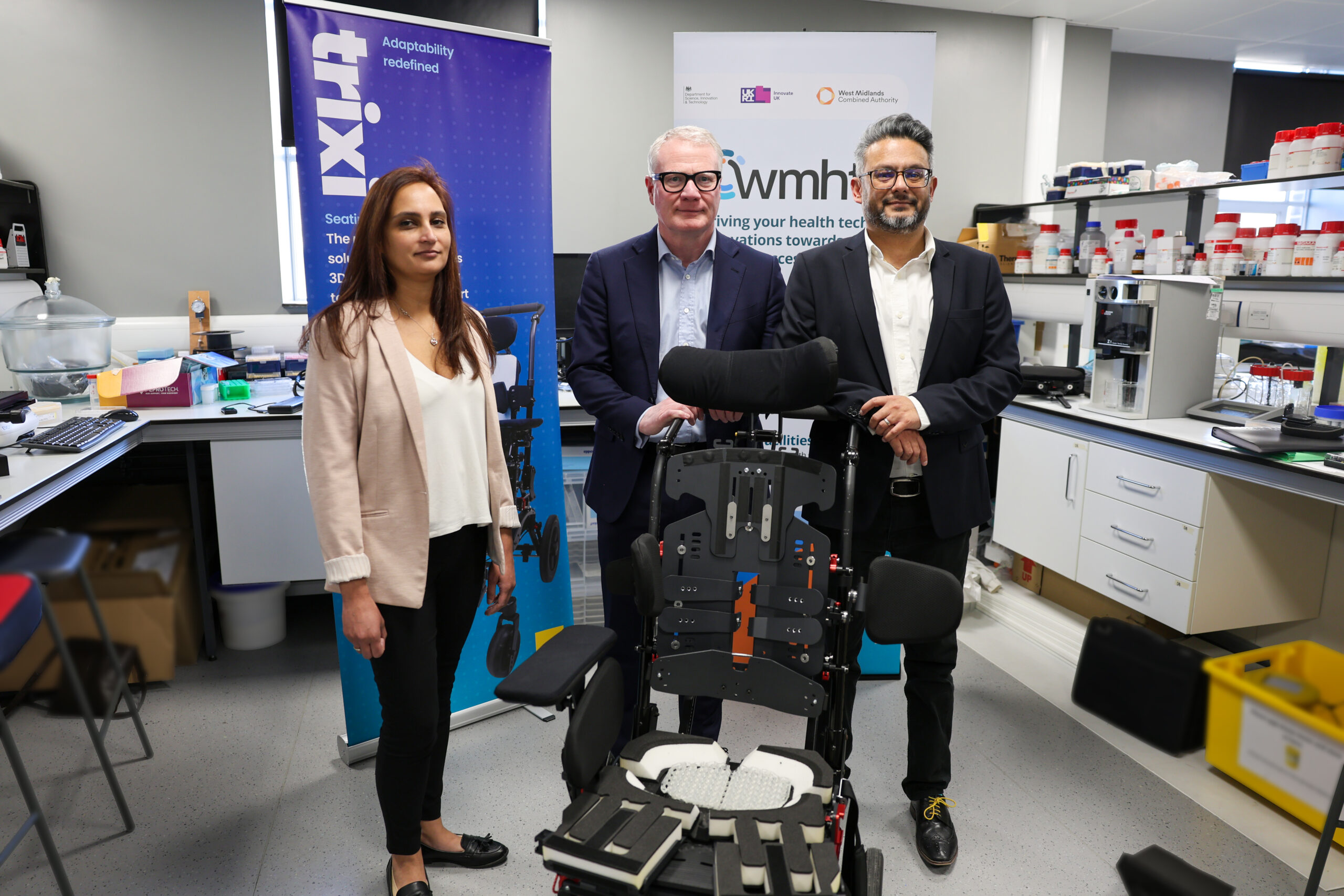
Cerebral palsy (CP) is the most common physical disability in childhood, affecting 1 in every 400 children in the UK1.
Globally, it is estimated that 18 million people of all ages have CP2.
Children with CP can quickly develop postural complications if not provided with an appropriate seating at an early age and most often, the complexity of the posture can only be accommodated using a custom-made seating system. There is a gap in the seating market provision where some complex postures and conditions need accommodating using a modular product.
However, current custom systems need lengthy manufacturing times, with wheelchair services facing the pressure of 18-week RTT (Referral to Treatment) to assess and deliver suitable seating solutions to reliant users who require speedy intervention.
Alongside delivery time, there is also the burden of expenditure.
Due to limited adjustability and growth adaptability, current systems require frequent replacement as the child grows and changes posture.
Between 2024 and 2025, NHS Integrated Care Boards across England spent roughly £529m on wheelchair services3.
Enable Design introduce the Trixi Seating System, an innovative seat that meets a range of complex posture requirements and is adjustable, sustainable and cost-effective.
Innovation
Trixi is a seating solution designed to provide support for children and young adults with postural and mobility needs.
Through its patented seat base, cushion, independent pelvic cradle and back support, Trixi can be configured to accommodate pelvic, hip and trunk postural differences.
The innovative split-seat base cushion and backrest shell design adapts seamlessly to individual postural needs and evolves as users grow, or their postural patterns change.
This support helps improve user comfort, function and stability and reduces long-term healthcare costs associated with postural deterioration.
Enable Design’s solution is “off-the-shelf” meaning the seating system is built to integrate with various existing wheelchair bases in the market. However, most importantly, it means that waiting times for users are drastically reduced.
A Trixi seating system only takes ten working days to manufacture and ship from the day an order is placed.
Moreover, when re-upholstered, the design becomes re-usable for other users. This reusability reduces waste and procurement costs associated with current seating solutions.
By alleviating strain on healthcare resources, Trixi enhances overall healthcare provision by improving accessibility and quality of care for individuals with disabilities.
The benefits
The Trixi Seating System is significantly impacting the lives of children and young adults across wheelchair clinics around the UK in many ways:
- Reduced waiting times: The off-the-shelf solution drastically reduces current waiting times from up to four months to a matter of days
- Sustainable and cost effective: Trixi is long-lasting and re-issuable – reducing high NHS expenditures that come with frequent wheelchair replacement
- Improved patient quality of life: Trixi enhances postural support, comfort, mobility and independence for users
WMHTIA support
The West Midlands Health Tech Innovation Accelerator (WMHTIA) has supported Enable Design in real-world deployment through regulatory approval, safety testing, and market readiness.
Enable Design have drawn on the support of Warwick Manufacturing Group (WMG) who are exploring different materials for future product refinement.
Most notably, Enable Design were WMHTIA grant recipients, using the funds for regulatory approvals and safety testing - helping advance Trixi's Technical Readiness Level (TRL) from development stages to market readiness.
What's next?
In 2024, Enable Design established a manufacturing facility in Oldbury, West Midlands, where the Trixi Seating System is now assembled. This facility supports local job creation and domestic manufacturing and assembly.
Trixi launched internationally in the same year and established distributor partnerships in seven countries across Europe. With confirmed stock orders, Trixi is now entering commercial adoption and international distribution.
Anil Patel, Founder of Enable Design, said:
"The support from the WMHTIA has been vital in accelerating Trixi from concept to market. The accelerator's input has directly supported our regulatory approvals, safety testing, and international readiness. With production now established in Oldbury, we’re creating local jobs, strengthening UK manufacturing, and delivering seating systems that improve lives across the NHS and beyond.”
For more information on the Trixi Seating System and the work that Enable Design are doing, visit www.trixiseating.com
The WMHTIA is part of the pilot Innovation Accelerator programme, which is led by Innovate UK on behalf of UK Research and Innovation and the Department for Science, Innovation and Technology.
This new model of funding focuses on locally-led innovation to drive economic growth and technological advancement by supporting regional innovative businesses, researchers and entrepreneurs. In the West Midlands, local leadership has been driven by a partnership comprising of the West Midlands Combined Authority, universities and other research institutions, and senior industry representatives.
Building on the £100 million already invested between 2022 and 2025, a further £30m was spread equally across three UK city-regions participating in the pilot Innovation Accelerator programme, which includes a funding boost of £4m for the WMHTIA to continue its support of Health Tech innovators in 2025/26.

Sources:
- https://www.scope.org.uk/advice-and-support/cerebral-palsy-introduction ↩︎
- https://cparf.org/what-is-cerebral-palsy/facts-about-cerebral-palsy/ ↩︎
- https://www.england.nhs.uk/statistics/statistical-work-areas/national-wheelchair/national-wheelchair-data-collection-quarterly-publication-files-2024-25/ ↩︎